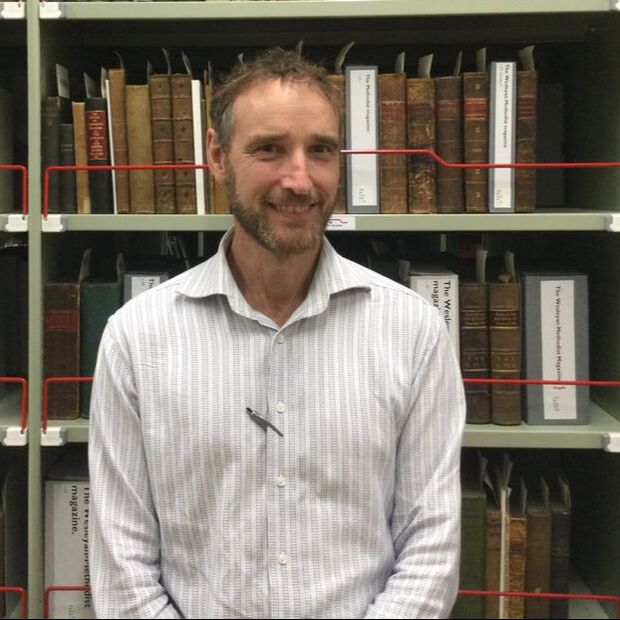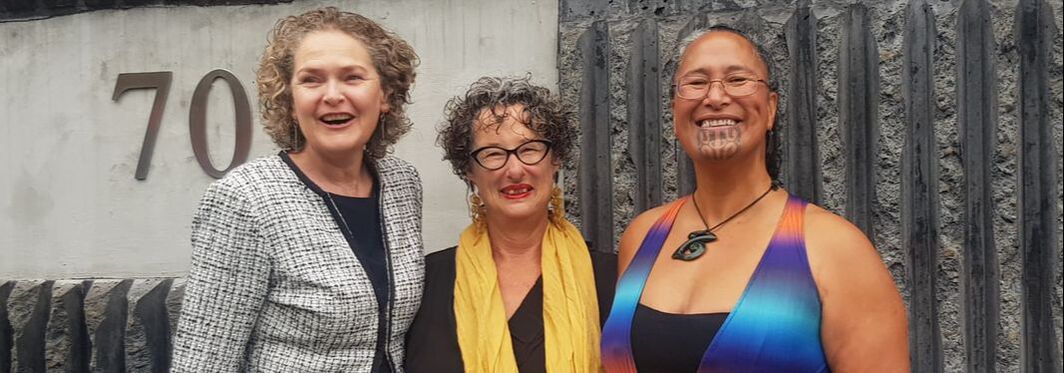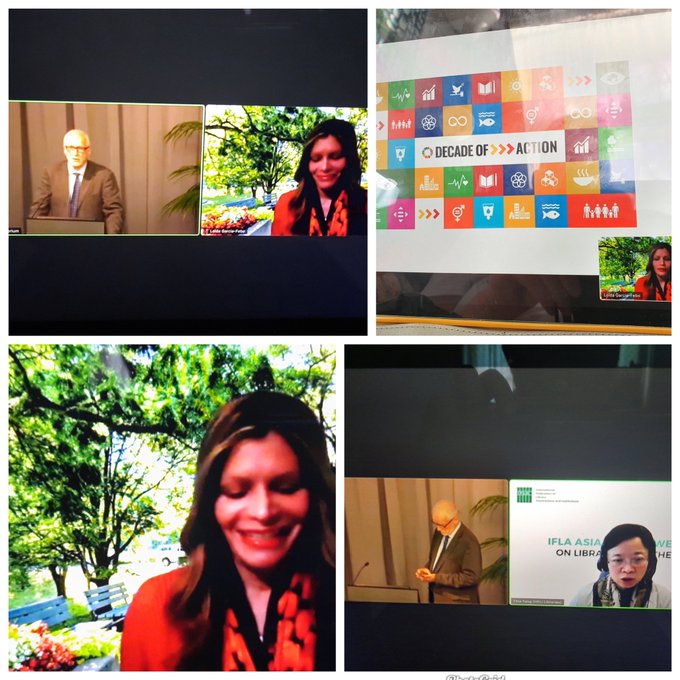| Meet Christopher Meech, new Head Curator Publications at the Hocken Library, a position advertised in LIANZA Kōrero last year. Christopher comes to this role from the Waitaki District Archive after 20 years in libraries. Kia ora Christopher and congratulations on your new role! I appreciate that you have only just started in this new role but we are wondering if you have any blue sky goals lined up for the publication collection at the Hocken? Hocken Collections has an impressive published collection which has been professionally cared for over the years. It will take some time to get to know the strength and subtlety of the collection. |
How does this new role differ from your work at the Waitaki District Archive?
Having just started at Hocken a couple of weeks ago I’m still getting to grips with what the new job entails. My work at Waitaki Archive was very broad. It’s a small institute with diverse and eclectic holdings relating to Waitaki, so I was able to do a bit of everything. As Curator of Archives at Waitaki Archive I was responsible for the management of archival, photographic, oral history, manuscript and published collections held by the archive.
Hocken Collections is a considerably larger, older and better resourced institute, it is a research library in a university setting. My current role is responsible for the published collections which includes serial, monographs and maps. Hocken’s collecting mandate broad and geographically includes Aotearoa/ New Zealand, Pacific Nations, Antarctica and early Australia where it relates to Aotearoa/New Zealand. I manage a dedicated and skilled team of four to achieve this end.
Can you share with our readers a little about your library background and how it led to this role?
After a lifelong interest in information systems and libraries I was fortunate to find a job as a Library Assistant in the reference section at the University of Otago Library in the newly constructed Information Services Building in 2001. The building was thronging with activity and the sound of concrete cutters filled the air. I completed a MLIS while working for the University and then applied for and was successful in gaining a position as Reference and Heritage Librarian at Oamaru Public Library in 2008. I really enjoyed working with documentary heritage and special collections such as the Janet Frame collection of foreign language titles at Oamaru Library. When the opportunity arose for a new Curator of Archives at Waitaki District Archive I applied and was appointed. The role of Head Curator, Publications at Hocken came up and I thought it was an opportunity too good to miss!
You’ve been in the deep south for 20 years now, do you have a special attachment to the area?
The light falls across the land in a special way in Murihiku. You can see it in the art created here and in the languid summer evenings. I feel fortunate to have spent the last 20 years bathed in this light. I’m also lucky to have a broad network of friends and colleagues living in this region and beyond.
Finally, any tips for our readers on acing a job interview?
Job interviews are a formal process which one doesn’t always have much experience at. To succeed at an interview and to ease your own nerves the best thing to do is to prepare. There are many printed and online resources to support job interview preparation, I have found The Secrets to Getting a Job by Philip Garside, very helpful.
Thanks Christopher and best of luck in your new role!





 RSS Feed
RSS Feed